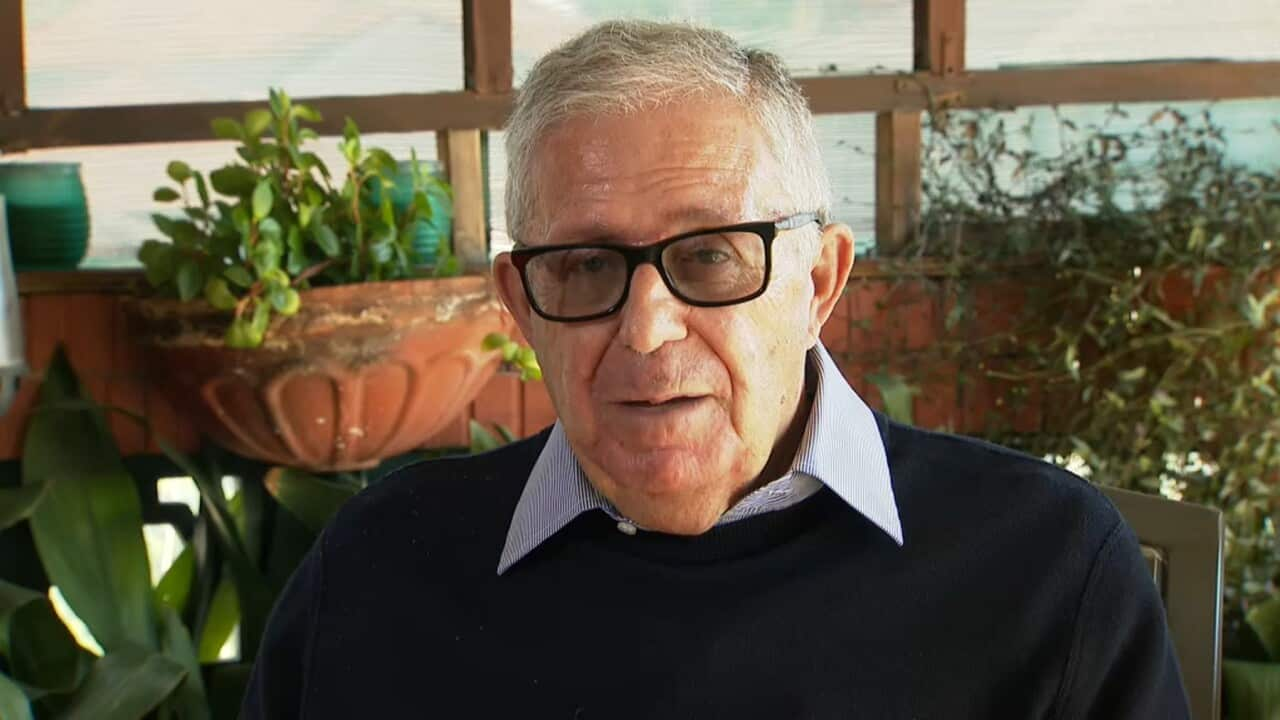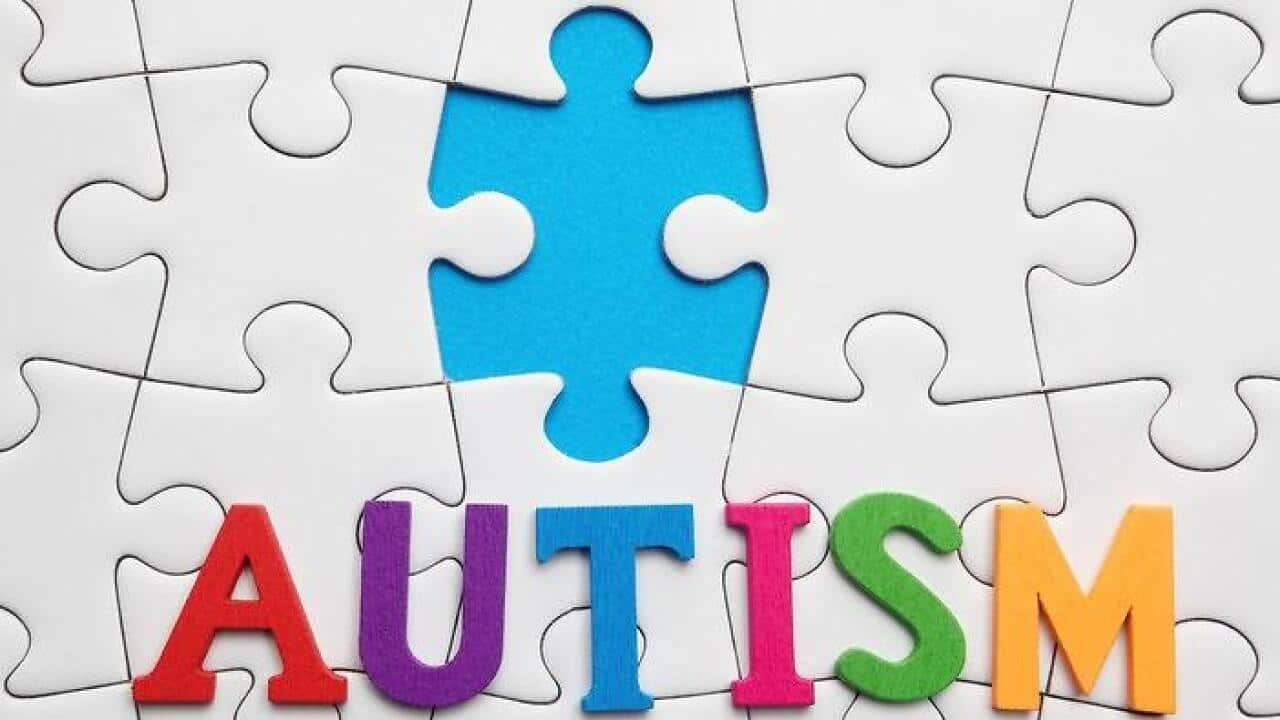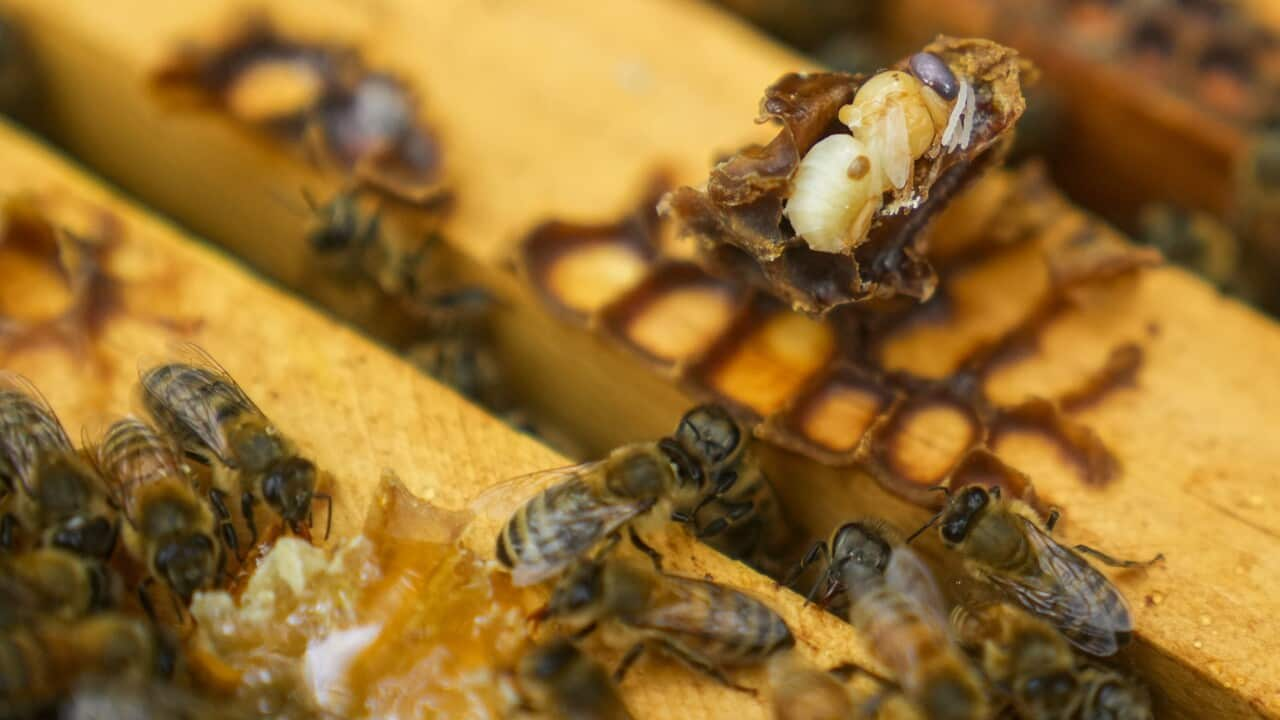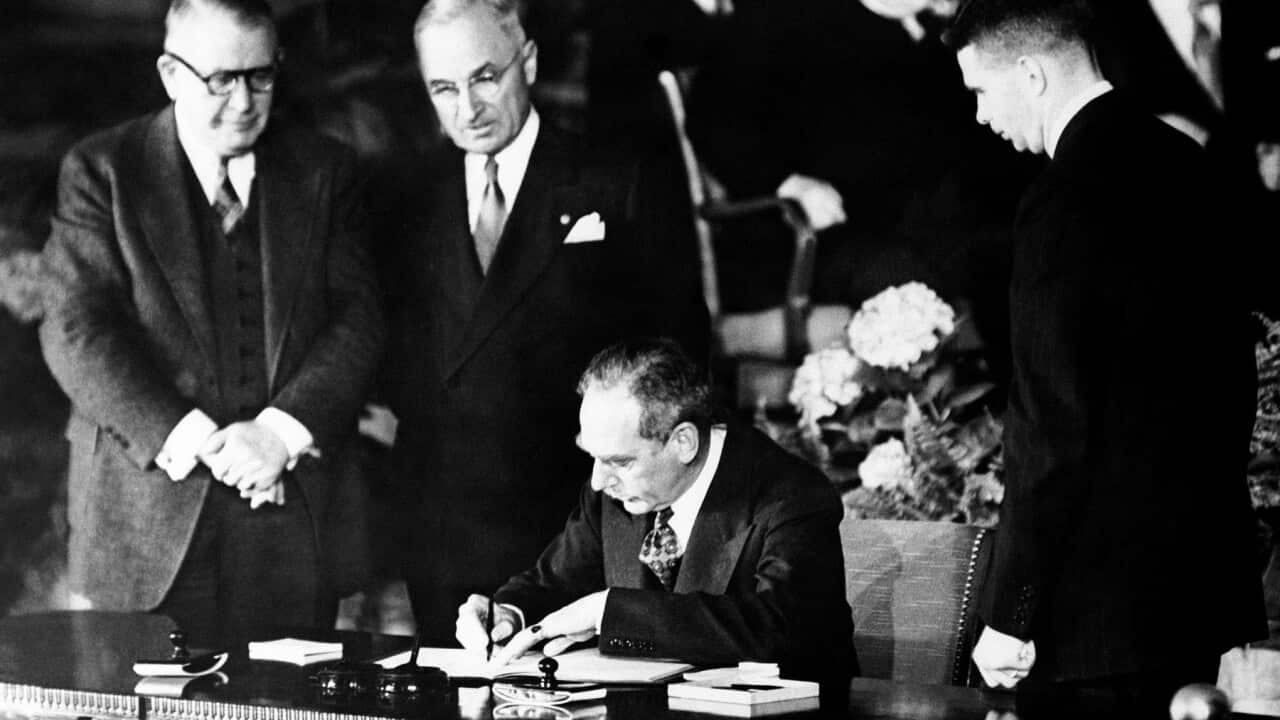SCARICA la trascrizione col testo a fronte in inglese.
Italian
I club sono stati una delle prime vittime del divieto del governo di radunarsi in molti locali pubblici.
Il tentativo di fermare la diffusione del coronavirus ha lasciato migliaia di anziani vulnerabili e socialmente isolati.
Uno di questi è Tony Labbozzetta, che ha contribuito enormemente alla scena calcistica australiana negli ultimi 50 anni.
È l'ex presidente del Club Marconi, un club fondato da migranti che si è trasformato in un locale con licenza e con un suo stadio di calcio.
Quale anziano in pensione, Labbozzetta fa affidamento sull'ambiente del club per conforto.
Lui e i suoi amici frequentano il locale, trascorrendo le ore con cene al ristorante e interminabili partite a carte.
Labbozzetta ha dichiarato che le restrizioni dovute al coronavirus hanno frustrato molte persone.
"There are a couple of groups that are ringing me constantly. 'Let's get together and have a game of cards, I can't stay at home any more and I've had enough.' So I suppose in some ways, to some of our colleagues, I'm trying to be a bit of an influence in restoring a bit of calm."
Per molti anziani australiani, in particolare quelli con problemi di salute, i club e i pub sono il centro della loro vita sociale.
Danny Fitzgerald, amministratore delegato dell’RSL di Petersham, nell’Inner West di Sydney, è stato costretto a chiudere i battenti qualche tempo fa.
Ha ricevuto molte chiamate e visite da parte di clienti che gli hanno chiesto di poter entrare, ma è stato costretto a respingerli.
Fitzgerald crede che l’ansia stia aumentando nella comunità a causa della chiusura del club.
"Look, I'd imagine a lot of them are feeling isolated now, at home, on their own, and of course some of them lack English skills."
Il locale è una seconda casa per la sua clientela multiculturale, che comprende numerosi portoghesi, greci, macedoni e italiani.
Fitzgerald sostiene che visitare il club è una parte importante della loro vita.
"A lot of them are here seven days a week and it's just for the socialisation, being with their friends, being with people that speak their languages."
Esther Rhodes, una socia del club, trascorreva fino a cinque giorni alla settimana nel locale.
Adesso una nonna, era emigrata dalla Tanzania 40 anni fa e ora occupa il suo tempo con la lettura, camminando nel suo giardino e prendendosi cura delle sue verdure ed erbe.
Dice che a lei e ai suoi amici manca l'ambiente del club.
"Well they miss that socialising with other people. It's not the same as talking on the phone because you don't see them face to face, so it's different."
Per quei clienti, la speranza è che i club riaprano al più presto possibile.
English
Social clubs were one of the first casualties of the government's ban on many places of public gathering.
The bid to stop the spread of coronavirus has left thousands of Australia's vulnerable elderly people feeling socially isolated.
One of them is Tony Labbozzetta , who has made a huge contribution to the Australian football scene over the past 50 years.
He is the former president of Club Marconi, a club founded by migrants which has transformed into a licensed venue with its own soccer stadium.
As a retired senior, Mr Labozzetta relies on the club environment for solace.
He and his friends frequent the venue, whiling away the hours with dinners at the restaurant and endless card games.
Mr Labozzetta says the coronavirus restrictions have left many feeling frustrated.
"There are a couple of groups that are ringing me constantly. 'Let's get together and have a game of cards, I can't stay at home any more and I've had enough.' So I suppose in some ways, to some of our colleagues, I'm trying to be a bit of an influence in restoring a bit of calm."
For many elderly Australians, particularly those with health issues, the club and pub scene is the centre of their social life.
Danny Fitzgerald, the C-E-O of Petersham RSL in Sydney's inner west, was forced to shut his doors some time ago.
He's received many calls and visits from patrons asking to come inside, but is forced to turn them away.
Mr Fitzgerald believes anxieties are running high in the community as a result of the club's closure.
"Look, I'd imagine a lot of them are feeling isolated now, at home, on their own, and of course some of them lack English skills."
The venue is a second home for its multicultural clientele, including numerous Portuguese, Greek, Macedonian and Italian people.
Mr Fitzgerald says making the trip to the club is an important part of their lives.
"A lot of them are here seven days a week and it's just for the socialisation, being with their friends, being with people that speak their languages."
Club member Esther Rhodes used to spend up to five days a week at the venue.
The grandmother emigrated from Tanzania 40 years ago and now occupies her time with reading, walking in her garden and tending to her vegetables and herbs.
She says she and her friends miss the club environment.
"Well they miss that socialising with other people. It's not the same as talking on the phone because you don't see them face to face, so it's different."
For those patrons, the hope is that clubs will re-open sooner rather than later.
Report by Michael Tomalaris and Jennifer Luu





